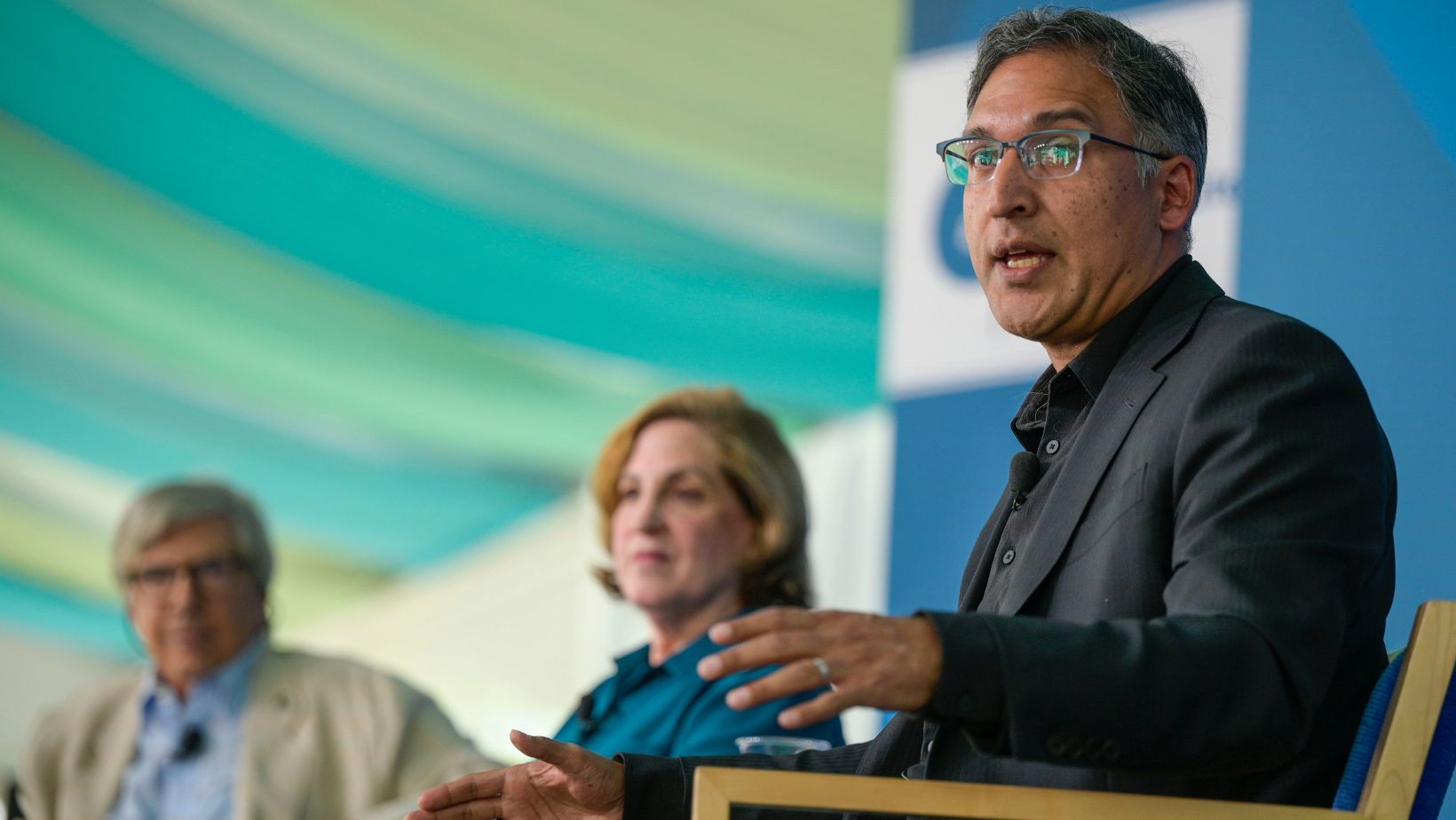With the election a mere 13 days away, all eyes are on a dizzying array of national and swing state polls whose crosscurrents can sometimes be difficult to make sense of. National Journal political analyst Charlie Cook and ABC News Political Director Amy Walter are two of the savviest poll-watchers in Washington, and came to the Institute for a discussion with Steve Inskeep, co-host of NPR’s “Morning Edition,” to help make sense of the morass. And from super PACs to swing state scar tissue, a cautious but clear consensus emerged: The race is close, but as of today, President Obama has the structural advantage over Mitt Romney in reaching the 270 Electoral College votes needed to win the election.
Despite the recent spate of commentary on Romney’s momentum, Walter says the data tells another story. “You look at the news coverage and you look at the data, and you get two different answers,” she said. “The news says that Romney is ascendant after a terrible summer and September. But people don’t elect the president, the Electoral College elects the president, and the president has an edge in the Electoral College race. He has always had multiple paths to victory.”
Cook attributed some of that critical swing state edge to the Obama campaign’s summer strategy, which was to blanket battleground states with negative advertisements depicting Romney as everything from out-of-touch to a corporate raider. “There is a lot of scar tissue in the six or seven swing states that saw the brunt of the Bain Capital-plant closings-outsourcing-Cayman islands ads,” Cook said. “The Romney campaign made a huge error by not going in early and trying to tell people about Romney and project a positive image. He was a blank piece of paper. You want to create a reservoir of goodwill and Teflon coating before the slime hits, and the Romney campaign didn’t do that. So after the first debate, Romney’s numbers likely went up in all 50 states, but there are six or seven they went up less in because of that scar tissue.”
Nor have the super PACs supporting Romney, who have vastly outraised those supporting the president, had quite the clout they’re hyped to, Walter said. “What these groups are focused on is often completely different than what the campaign wants it to be focused on,” she said. “TV stations also have to give candidates time, and they don’t have to do so with an independent group.” It also costs more for super PACs to place an ad, like “paying retail while campaigns pay wholesale,” as Cook quipped.
None of this was to say the president’s path to reelection would be easy, and the outcome is still up for grabs. Cook and Walter agreed that the first debate was a pivotal moment for Romney. Cook described a focus group in Ohio where “one woman said ‘I look at Romney through new eyes.’ She was still undecided, but she was looking, and that’s what’s been different since the last debate.” Walter highlighted many voters’ unease with Obama’s derailed promises of bipartisanship. “When I’ve gone to the states where the economy is getting better, they still aren’t giving him that much credit because he’s failed on that measure,” she said.
No matter who wins the election, one thing is certain: Unlike the political junkies who fixate on polls, the voters who will determine the outcome of tune out the Beltway chatter. As Cook said, “Conservatives and Republicans have passions, liberals and Democrats have passions, and moderates and independents have lives. They don’t like politics or politicians, and are cynical about Washington. They show up out of civic obligation or because they’re angry.”
Watch the full discussion below:

